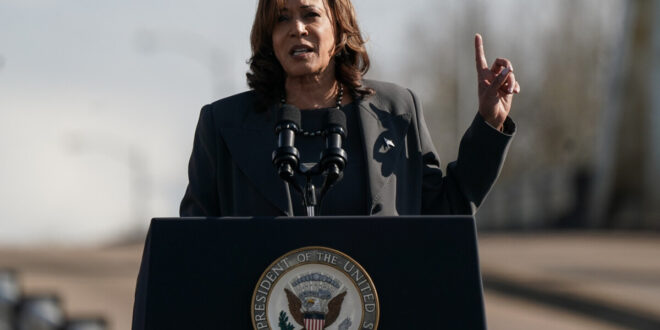The administration says there’s no daylight between her and the president’s Israel stances.
Harris’ comments have come against the backdrop of two fraying relationships: the one shared by the U.S. and Israel and the one the president has with his base of supporters angry over the conduct of the war.
Allies and Democratic operatives believe that Harris’ more outward agitation with Israeli leadership can resonate with a domestic audience eager to see a change of direction from the administration.
“What she said is consistent with what the president and [national security spokesperson John] Kirby have said, but this is one of the things that I think the administration finally gets: That coming from a Black woman, a different group of people may hear that differently, even though it’s the same comment,” said one longtime Harris ally who was granted anonymity to speak freely about the administration.
White House aides say Harris has not rolled out new policies over the last six months but they acknowledge her comments have been perceived differently than Biden’s, including the ABC interview.
“The vice president declined to speculate on a hypothetical situation, consistent with the administration’s position. We continue to have concerns about a major military operation in Rafah. We are never going to leave Israel unable to defend itself,” a Harris aide told POLITICO on condition of anonymity to discuss internal thinking.
While Harris’ remarks have prompted questions about the existence of a perceived chasm within the ranks — “It is fair to say there have been mixed public messages coming from the administration,” is how Makovsky put it — what’s been clearer is that the administration has grown more critical of Israel over time.
On Monday, the U.S. abstained from a United Nations Security Council vote demanding a cease-fire in Gaza during the holy month of Ramadan, one that allows for the release of around 130 hostages. Netanyahu quickly followed through on his threat not to send an Israeli delegation to Washington if the U.S. failed to veto the measure. That followed Biden’s State of the Union address, in which he offered his support of Israel but also highlighted the deteriorating conditions in Gaza, and was caught on a hot mic warning of a “come to Jesus” moment with Netanyahu.
 Geostrategic Media Political Commentary, Analysis, Security, Defense
Geostrategic Media Political Commentary, Analysis, Security, Defense





